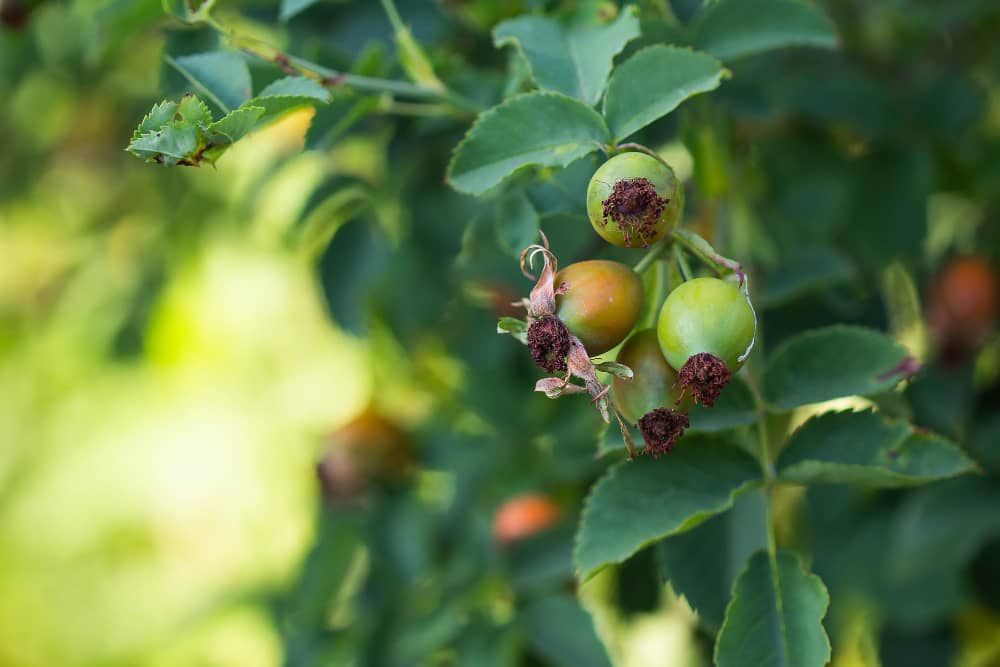Rose hips are the fruit of the wild rose bush and are used in various ways. They can be eaten raw, made into jam, or used to make rosehip syrup. Rosehips contain a high amount of Vitamin C, making them a popular supplement choice. They can also be dried and used in teas or potpourirs.
What are rose hips?
Rose hips are the fruit of the rose bush and have been used for centuries for their medicinal properties. Rose hips are high in Vitamin C and are thought to help boost the immune system and reduce inflammation. Rose hips can be eaten raw or made into a tea and are available fresh or dried. Rosehips are in season from August to October.

Why are rosehips good for your health?
Rosehips have a long history of being used for their health benefits. The fruit and seeds of the rosehip plant are a rich source of vitamins, minerals, and antioxidants. Rosehips are exceptionally high in vitamin C, essential for immunity and collagen production. They also contain vitamins A and E, as well as the minerals iron, magnesium, and calcium. Rosehips are thought to have anti-inflammatory properties and may help to reduce the risk of heart disease and some types of cancer. Research on the health benefits of rosehips is ongoing, but there is already evidence to suggest that they can have a positive impact on our health.
How can you eat rosehips?
Rosehips are the fruit of the rose plant and have been used for medicinal purposes for centuries. They’re highly nutritious and packed with vitamins, minerals, and antioxidants. Rosehips can be eaten fresh, dried, or made into tea. They can also be used to make syrup, jam, or marmalade. Fresh rosehips are typically available from late summer to early winter. When choosing fresh rosehips, look for bright, deep-red fruits that are firm to the touch. Avoid any mushy or white spots, as these may be signs of rot.
Wash them and remove the stems and seeds to prepare fresh rosehips for eating. Rosehip tea is a popular way to enjoy the fruit’s nutritional benefits. To make rosehip tea, simmer 1-2 tablespoons of dried rosehips in 8 ounces of water for 10 minutes. Strain the tea and add honey or lemon to taste. You can also find pre-made rosehip tea bags at many health food stores.

When are rose hips in season?
Rosehips are in season from late summer through early winter. They are typically harvested from wild rose bushes but can also be cultivated. The ideal time to harvest rosehips is after the first frost when they are at their ripest.
Rose hips are a rich source of Vitamin C and other antioxidants, which makes them great for your health. They can be used in various ways, including teas, jams, syrups, and soups. Rosehips can also be dried and used as a decoration or potpourri.
Final Words
Rosehips are a type of fruit that grows on wild roses. They are red or orange and contain seeds. Rosehips are rich in vitamins and antioxidants and have many health benefits.
You can eat rosehips raw, cooked, or dried. They can be added to soups, stews, jams, and other foods. Rosehips are in season from late summer to early winter.
If you are looking for a superfood packed with nutrients and numerous health benefits, then rosehips are a great option. Add them to your diet today and enjoy all the incredible benefits they offer.
Post Disclaimer
The information contained in this post is for general information purposes only. The information is provided as is and while we endeavour to keep the information up to date and correct, we make no representations or warranties of any kind, express or implied, about the completeness, accuracy, reliability, suitability or availability with respect to the website or the information, products, services, or related graphics contained on the post for any purpose.
These statements have not been evaluated by the FDA and are not intended to diagnose, treat, cure or prevent any disease or health condition. If you have specific healthcare concerns or questions about the products displayed, please contact your licensed healthcare professional for advice or answers.


